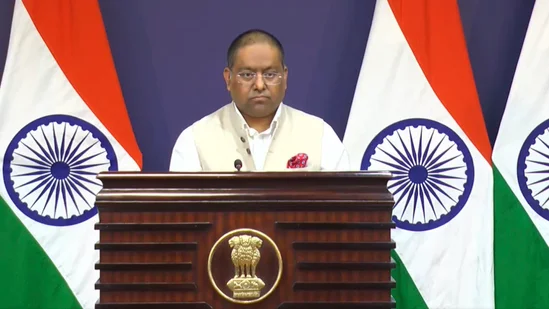New Delhi, May 29: India on Thursday reiterated that the May 10 ceasefire understanding with Pakistan was not influenced by any trade-related discussions with the United States, pushing back against claims made in a US legal proceeding.
The Ministry of External Affairs (MEA) clarified that the ceasefire, which followed “Operation Sindoor,” stemmed from direct military-level communication between India and Pakistan and was independent of any external economic engagement.
“The cessation of firing was decided upon through direct contact between the DGMOs of India and Pakistan,” MEA spokesperson Randhir Jaiswal said during a weekly media briefing on Friday.
Jaiswal’s remarks came after US Commerce Secretary Howard Lutnick, in a May 23 legal filing, suggested that President Donald Trump had offered trade access to both India and Pakistan to avert escalation between the two nuclear-armed nations. The submission was made in response to a lawsuit filed by American business owners challenging Trump’s tariff regime.
According to Lutnick’s filing, “President Trump interceded and offered both nations trading access with the United States to avert a full-scale war.”
Responding to these claims, the MEA spokesperson stated that India’s stance had already been “well articulated” and said that no trade or tariff-related issues were discussed during interactions with US officials in that period.
“From the time Operation Sindoor commenced on May 7, till the ceasefire understanding on May 10, there were conversations between Indian and US leaders about the evolving military situation,” Jaiswal said. “The issue of trade or tariffs did not come up in any of those discussions.”
The controversy emerged alongside a significant legal blow to Trump’s trade policies. On Wednesday, the US Court of International Trade ruled that key tariff measures introduced by Trump were unlawful. The ruling affects the former president’s 10% reciprocal tariff on US trade partners, additional levies on Chinese imports, and fentanyl-related tariffs targeting China, Canada, and Mexico.
Bloomberg reported that the court submission highlights how the Trump administration may have employed trade access as a diplomatic lever during global crises.
In defense of the policies, the Commerce Department argued that invalidating Trump’s invocation of emergency powers would dismantle a “cornerstone of national security,” impair US responses to foreign threats, and hinder foreign policy through economic channels.
The US Justice Department has since filed a notice of appeal, indicating that the legal battle over Trump’s tariff strategy is far from over.

